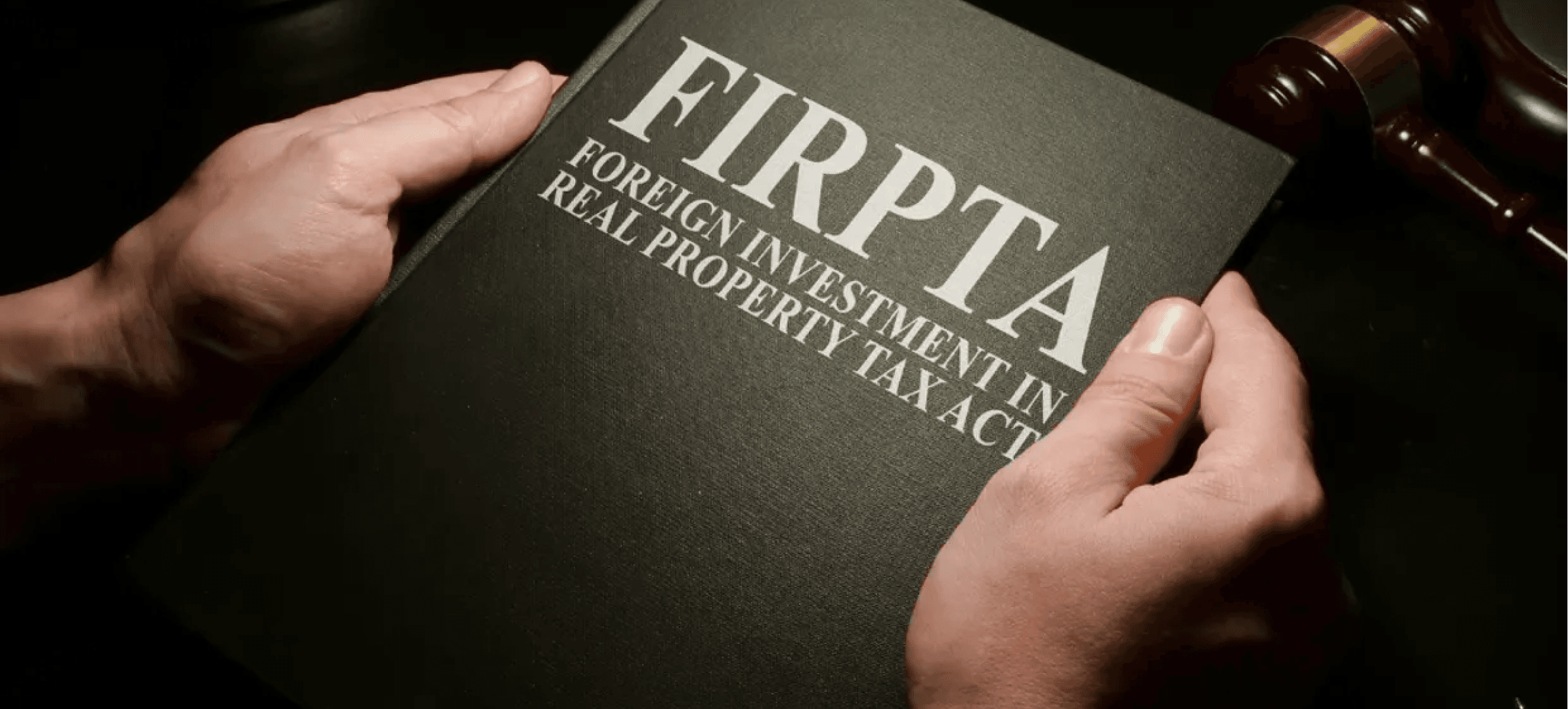
FIRPTA is a U.S. tax law requiring buyers to withhold 15% of the sales price when purchasing real property from a "Foreign Person." This withholding serves as a prepayment on the seller's potential taxes. "Foreign Persons" include non-U.S. citizens and entities that don't meet the U.S. residency criteria. There are exemptions and reduced withholding rates, such as for properties intended as a personal residence. Buyers are responsible for proper withholding to avoid IRS liability.
The U.S. tax code requires all individuals—both domestic and foreign—to pay taxes on income from U.S. property sales. While domestic sellers pay this through regular income tax filings, foreign sellers are subject to FIRPTA, which ensures taxes are collected upon the sale of property.
How It Works:
- Buyers withhold a percentage of the property sale price and remit it to the IRS
- This withholding is an advance on taxes owed by the foreign seller
- FIRPTA applies to both residential and commercial properties
Standard Withholding Rate: Buyers must withhold 15% of the sales price for transactions involving a "Foreign Person."
A "Foreign Person" includes anyone who does not meet the U.S. residency or citizenship criteria. FIRPTA defines a "United States Person" as U.S. citizens, Green Card holders, resident aliens who meet the Substantial Presence Test, and U.S.-registered corporations or partnerships.
Substantial Presence Test: An individual qualifies as a U.S. person for the year if they spend 31 days in the U.S. in the current year and have a total of 183 days over three years, calculated as all days in the current year, 1/3 of days in the previous year, and 1/6 of days in the year before that.
If a single-member domestic LLC is involved, it is considered a “Disregarded Entity” for tax purposes. If the sole member qualifies as a "Foreign Person," FIRPTA withholding rules apply as if the foreign owner is the seller.
FIRPTA includes several withholding exceptions or reductions:
1. Seller Not a Foreign Person: The seller can provide an affidavit verifying non-foreign status, including name, U.S. Social Security or TIN, and address
2. Personal Residence Exemption: If the property will be the buyer's residence and the sales price is $300,000 or less
3. Reduced Rate of Withholding: Buyer's residence with a sales price between $300,000 and $1,000,000 allows for a 10% withholding rate
4. Withholding Certificate: Sellers can apply for a certificate from the IRS to reduce or eliminate withholding if they meet specific criteria

The IRS requires Taxpayer Identification Numbers (TINs) for both buyers and sellers on all FIRPTA-related forms. If either party lacks a TIN, special guidelines apply for withholding and reporting.
If the sale's proceeds don't meet the required FIRPTA withholding, such as in short sales, the seller must apply for an exemption or reduced withholding from the IRS. This process requires prompt handling by settlement agents.
Each seller in a transaction is assessed individually. For married couples, each spouse's share (typically 50%) is evaluated separately for withholding.
Though the tax obligation belongs to the seller, the buyer must ensure correct withholding. Failure to comply can result in IRS penalties and liability for the buyer.
Withholding must be sent to the IRS with Forms 8288 and 8288-A within 20 days post-closing. If a withholding certificate application is pending, the withholding is withheld but doesn't require immediate reporting.
Millions of Dollars in Settlements and Verdicts have been recovered in the courtroom for our clients.